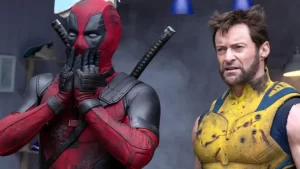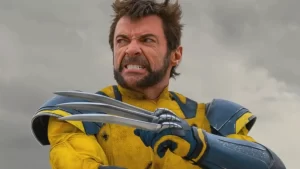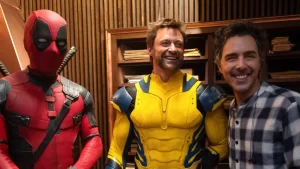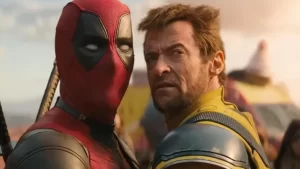Intense Excellence and an Emotional Toll
A Film review of Prisoners
By: Lawrence Napoli
[[wysiwyg_imageupload:11203:]]
What is a parent to do in an impossible situation? Your child is missing, but you also have a means of possibly finding out where your child might be and it directly involves doing something horrible. It’s a catch-22 between hell and the devil, and Prisoners is a film that puts the audience right into a parent’s worst nightmare in this exact scenario. This dramatic thriller plagues its cast and all those bearing witness with the impossible choice between the guilt of doing nothing and the demons of doing the unspeakable, and it is incredibly impressive how this is accomplished via the lens of religious morality and secular ethics without allowing the plot to spin out of control in either direction. Make no mistake; Prisoners is the first Oscar worthy film of the Fall thanks to a litany of marquee performances by a veteran cast and a story that that plunges its emotional tendrils into your soul and pushes the limits of your resolve.
Screenwriter Aaron Guzikowski certainly had plenty of material to draw from what with America’s media obsession with child abduction. So many families have been shattered. So many creepers have been thrust to the limelight. So many channels have reaped the ratings. As exploitive as the media may or may not be, it does provide an additional resource to get the word out to larger communities to join in an effort to find lost children, but its presence in this script is surprisingly absent. This helps the story immensely as the script is more concerned with making this fictional tragedy as personal as possible by highlighting those most directly involved with it. Scenes that play out within the victims’ families are written very realistically as self loathing and internal combustion are both fueled by anger, frustration and despair. Scenes that play out with the police are not quite as raw, but become so gradually which reflects how personal it can become for the men and women charged with finding children they have no relation to. What allows these scenes to intensify tenfold is that Guzikowski is constantly framing every conversation and argument within the ethics and morality of the situation at large which forces the audience to anchor at a personal level to what is happening in that instant. Amidst all of this drama, a very thought provoking crime conspiracy is playing out in the background and the balance amongst all the storytelling elements at work is simply masterful.
This film is a character and dialogue driven affair layered with elements of suspense. The fact that there isn’t a significant amount of action hurts the pacing a bit seeing how it runs for over two and a half hours, and the mood never sways from a negatively charged place. In addition to this general lack of movement, this film features one of the least interesting and brown scale color schemes a setting could provide any production. It is not an easy task for any director to look at these supposed handicaps and suddenly weave into an interesting film, but Denis Villeneueve chooses to allow the assets he does have at his disposal to lead the way, by staying out of theirs: the cast. More often than not (especially in films I’ve seen recently), actors have been horse-collared by script limitations that prevent interesting characters to be fleshed out and flat characters to remain so because the actors playing the leads are not as skilled as their costars. This is not the case for Prisoners. Every actor seems to reach perfect synergy with their characters and it takes a director that knows the script as well as his or her cast to achieve that kind of intimacy. The best directors are the least intrusive and provide leadership where necessary to complete the production.
Prisoners is a film that boasts one of the best supporting casts for a dramatic crime/thriller film. Terrence Howard and Viola Davis as the parents of one of the missing girls are exceptionally skilled at summoning tears on command. Maria Bello as the mother of the other missing girl produces a tragic train wreck of a woman shredded by despair. Paul Dano, once again, does what he apparently does best and will seemingly never escape: being extremely creepy. And let’s not forget Melissa Leo’s contributions as her prosthetic makeup conceals her identity, but her performance is anything but forgettable.
As much as Hugh Jackman has been promoted as the de facto Oscar candidate for the male lead in this film, Prisoners is every bit Jake Gyllenhaal’s baby as Jackman’s. Officer Loki is a detective clearly tormented by the utter filth that the worst human behavior has subjected him to as he is a loner, but somehow driven to continue to fight the good fight. Gyllenhaal’s transformation into a man that is almost driven to any means necessary to solve this crime and save lives is truly a sight to see because it doesn’t take someone in law enforcement to identify with helplessness, and the frustration that manifests in attempting to completely hold your emotions in check to get the job done. It will be quite easy for most to overlook Officer Loki because he’s still an average cop, but Gyllenhaal’s everyman approach to it makes his part less about the impersonal role of the law and more about seeking justice without bending the rules of law and order.
Intensity describes every aspect of Hugh Jackman’s performance as Keller Dover, the father of one of the missing girls. He is presented as a burly father and husband who is loving yet very particular about doing things his own way because it is the “right” way. He’s also a man who’s Christianity is clearly a significant contribution to his outlook on life. He’s more of an Old Testament, wrath of God type than a New Testament, turn the other cheek type. All of this sets the table for a man who has always been in control of life to be completely at its mercy, but he’s certainly not taking it lying down. We may have all seen Jackman’s anger and rage in his iconic performances as Wolverine, but he goes well beyond that level in Prisoners. It isn’t a berserker rage that demonstrates this new level of intimidation, but a depraved indifference for any target of his character’s personal investigation to the disappearance of his child through his chilling demeanor akin to a psychopathic serial killer. Keller Dover’s decent into darkness is the fundamental journey of this film, and it is as disturbing as it is stomach-turning. Jackman shows what it means when seemingly average people are pushed to their emotional and spiritual limit, but also the dangers that come with rationalizing the irrational through faith or any other means of justification.
Prisoners is an excellent film, but it makes you feel awful to know that you are a member of a species of life that is capable of doing what is shown in this film, which is a reflection from reality. Any parents new to the child raising game could take a few lessons from this movie regarding always knowing where they are and who they hang out with. They will also leave the theatre completely paranoid over the very real possibilities out there, and the fact that there’s no such thing as a community that’s safe without vigilance, concern and care. Prisoners is a film that poses the question when life puts you to the test, will you abandon high class ethics, doctrines of faith or base human decency when extreme tragedy comes to your doorstep? Are all of society’s rules and regulations meaningless words in certain situations? Are we all just looking for excuses to go feral? So many films are asking these kinds of questions these days, but very few reek as much emotional havoc on the audience as Prisoners.







